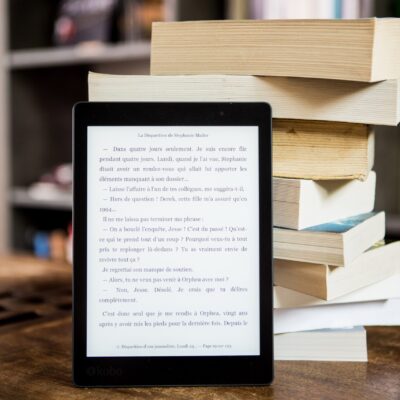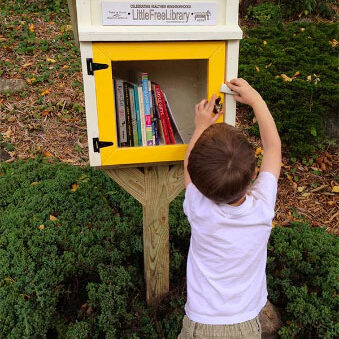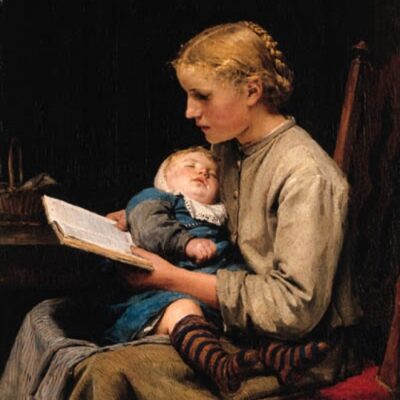The Poet’s House by Jean Thompson
Jean Thompson has lived near the University of Illinois campus since she landed her first teaching job there in 1973. In 1979, her debut short-story collection, Gasoline Wars won critical acclaim and shortly thereafter, she published her first novel, My Wisdom (1982). She has since written nine additional novels including The Year We Left Home and Wide Blue Yonder, and 6 short story collections, including the National Book Award finalist, Who Do You Love. The Poet’s House published by Algonquin Books in 2022 showcases her awesome ability to create complex characters who are in the process of leaving one role and entering another.
Viridian Boone, the subject of the novel, is a revered poet, a generational talent whose work has inspired an almost cult-like following. Although she appears other-worldly, she is plagued by escalating medical and financial problems. At first presented as a character archetype (e.g., the charismatic, mysterious, and beautiful writer), Thompson continues to add layers to her throughout the novel, refusing to “de-humanize” her. “Don’t take me for something I’m not,” she warns Carla. “Don’t make people into idols. It doesn’t do anybody any good.” [p. 232] Carla, too, begins as a type (the insecure college dropout) then morphs into a complex individual with many talents.
The novel is narrated by Carla, who “doesn’t process words on a page very well” (p. 4) and claims to be perfectly happy working for a landscape gardener in Northern California. Sent to deliver and plant nursery stock to the writer Mrs. Boone, she later attends one of her readings and experiences the emotional power of poetry. Because Carla finds reading difficult, she has never deeply connected with literature before—and one of the joys of this novel is getting to vicariously participate in her increasing obsession with poetry. Although she has no desire to write poems, they speak to her. She begins to understand them, to have a passion for reading them. As she explains to her boyfriend Aaron:
I think I may have a calling for it. Not writing poems but getting inside them. Understanding how they’re put together and how somebody’s mind works and how once in a while they make you feel like you grabbed onto a live electric wire. [p. 132]
Making Carla so perfectly ignorant, an irresistible blank slate [p. 2] is a brilliant move on Jean Thompson’s part because so many of us don’t read much poetry. Some of us find it tough to appreciate but Carla helps us to figure it out.
Thompson’s stunning dialogue helps create complicated, strange, and wonderful characters. As an example, here is a scene in which Carla meets Oscar, one of Viridian’s in-group for the first time.
“You’re the gardener, huh.”
“I work for a landscaping company.”
“That must be great. It’s the closest you could come to being a plant yourself.”
I looked up to see if he was making fun of me, but he had such a blissed-out, pleased expression on his face, and I remembered my mom saying you could never tell when somebody might be a little bit off, a little simple-minded, and you should treat them charitably.
“You mind if I do my exercises here? I won’t get in your way.”
“Go right ahead,” I was all right as long as it wasn’t naked yoga or something like that. I kept digging and didn’t look up.
Whatever kind of exercise it was, it involved a lot of loud breathing and grunting, a lot of bending himself double and reaching this way and that. This went on for a while. Then he stopped and clutched at his knees and puffed out his cheeks. His face was bright pink. He didn’t seem to be in very good shape. When he caught his breath again, he said, “So how do you like California?”
“Fine, I guess.”
“I find it takes some getting used to. I mean it’s like walking around inside a giant piece of fruit, isn’t it?”
Yeah, whatever. “I wouldn’t know. I haven’t lived anywhere else.”
“A California native? Wow. I didn’t think there were any of those.”
“We were hunted to extinction for our pelts, but we’re making a comeback.” [p. 14]
I haven’t mentioned the plot; there is one and like the novel’s themes, narrative, and dialogue, its purpose is to provide a deeper dive into specific characters. It concerns a hidden cache of valuable poems that Viridian has inherited from a former famous lover and refuses to publish even though she desperately needs the money. The plot reveals Carla’s growing strength of purpose in supporting the poetry community. As Viridian grows weaker, Carla quietly and efficiently takes over. More and more, we see Viridian’s followers trust Carla to support their work and Carla’s willingness and ability to do just that.
Through Carla, we experience the joy of learning to see the world differently and to gain confidence, resilience and wisdom in doing so. I highly recommend this clever, emotionally resonant coming-of-age novel. Enjoy!
Check Amazon for more on this book I love.

















